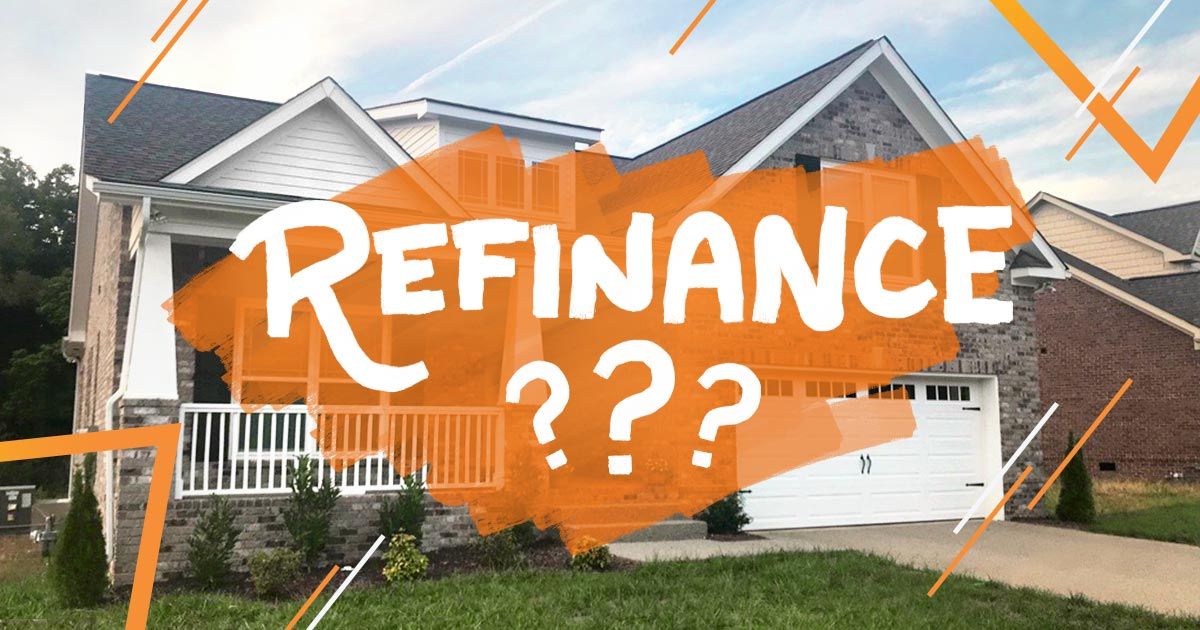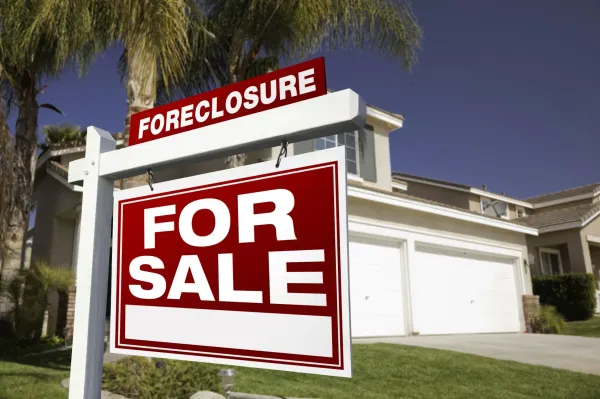If you've been in your home awhile, you've probably wondered about refinancing at some point in time. Interest rates are low. Whether you bought your home in the mid-2000s or even just five years ago, interest rates have decreased significantly. If you find yourself looking at today's interest rates and wondering, "should I refinance in 2023?" this guide is for you!
Should I Refinance in 2023? Assess Your Credit Situation
Refinancing is a relatively straightforward, sometimes time-consuming task. When you refinance your mortgage, you're essentially paying off your old mortgage with the proceeds of a new one. Therefore, you'll need to go through many of the same processes to refinance that you needed to do when you got your first mortgage. You'll need an appraisal. You'll also need to submit lots of documentation, and you'll need to qualify for a refinance like you would any other loan.
The fact that you're applying for a new loan to replace your old one means that you'll need to qualify for it the same way. Therefore, if you have bad credit, a high debt-to-income ratio, a lost job, or other potential pitfalls, you may want to hold off on refinancing until you resolve those.
For a conventional refinance, you'll need to meet the same qualifications as a new borrower. You will typically need a credit score of 620 and preferably 20% equity in your home. Without 20% equity, you'll still need to pay PMI, which can be quite substantial.
If you're interested in other government-backed loans, FHA mortgages have much less stringent credit score requirements. You can qualify for an FHA loan with a credit score of 580. If you have more than 10% equity, you can be eligible with a score as low as 500.
If you have a solid credit score, a relatively low debt-to-income ratio (40% or lower is preferable), and some equity in your home, those are all signs that refinancing might be a good idea.
Assess the Financial Impact a Refinance Could Have
Before looking too much into refinancing, you should look at today's interest rates. They're not too hard to find online. For the 2023 calendar year, experts predict that rates will go up to between 3.1% and 3.3%.
By historical standards, these rates are low. Unless you've got a mortgage recently, there's a good chance that you can save some money (in theory) by refinancing in 2023.
However, just because you see a lower interest rate doesn't give you a "yes" answer to your "should I refinance in 2023" question. As with most financial dilemmas, there are other aspects of refinancing that you should consider.
Should I Refinance in 2023? Do You Want To Increase or Decrease Your Monthly Payment?
A low rate is a good start, but you might also want to ask yourself if you're going to increase or decrease your monthly payment. Increasing it will pay your loan off faster and permit you to pay less interest. Conversely, reducing it will lengthen your loan term and increase the interest you pay.
Remember, refinancing isn't just taking your existing loan and giving it a better interest rate. Instead, you need to apply for a brand new loan. If you're five years into a 30-year term, you'll reduce your monthly payment by getting a new 30-year mortgage. Not only will your interest rate probably go down, but you'll now amortize 25 years left of monthly payments over 30 years. Of course, you'll now take another 30 years to pay it off instead of 25.
Conversely, perhaps you got a fantastic new job and cleaned up your credit recently. Instead of that 30-year loan at 4% you got back in 2014, you want to amortize over 15 years and lower your rate to 2.5%, now that you can afford it. Sometimes you can refinance to get a lower rate and decrease the duration of your mortgage!
Stop Paying PMI
One excellent reason to refinance is to stop paying PMI. Most conventional loans will let you remove it from your existing mortgage once you reach 20% equity. However, FHA loans are different. They require a lifetime of PMI payments - unless you refinance into a conventional loan once you hit 20% in equity.
Since PMI can frequently be somewhere around 1% of the loan's value, it's almost always worth refinancing, if necessary, to remove this extra charge (especially with the low rates expected for 2023). Check your loan documents to see if you can ask to remove the annual cost or if you'll need to refinance to get out of it.
Choose a Different Lender
Another reason you might want to refinance is to choose a different lender. Perhaps you picked a lesser-known lender that doesn't have a website, or you find it challenging to submit payments. Or maybe you've had incorrect charges levied on your account.
If you've had any problems with your lender, you can always refinance to another one. That way, you won't have to put up with up to 30 years of subpar service!
Should I Refinance in 2023? If It Makes Sense To Do So, Yes!
While most people are not projecting interest rates to remain at record lows for 2023, they will be low by historical standards. So while you won't get the absolute best interest rate in 2023, you'll get pretty close to it. That means you should give refinancing some consideration.
If you want to adjust your monthly payment, lower your interest rate, get rid of PMI, or get rid of your mortgage servicer altogether, refinancing is the only way to do it. That is unless you have the funds to pay the loan off in its entirety!
Look at your credit and financial situation. If you're in a position where refinancing could save you money or improve your cash flow, please consider it. Rates may go up a little in 2023, but they'll go up much more significantly in 2022 if the economy recovers and the COVID-19 pandemic is solidly in our rearview mirror. This year could be the last one to get these fantastic rates!
Conclusion
Deciding to refinance your mortgage in 2023 could lead to substantial monthly savings, depending on your unique situation. Securing a lower mortgage interest rate can significantly decrease your monthly mortgage payment. However, it's essential to remember that a mortgage refinance typically involves closing costs, which might counterbalance some of your savings. Furthermore, switching from an adjustable rate mortgage to a fixed rate mortgage can offer stability and predictability in your monthly mortgage payments, although it could result in a slightly higher monthly payment.
The opportunity of a cash out refinance might be appealing, offering the possibility of freeing up funds for home improvements or debt consolidation. However, bear in mind that this method could lead to an increase in your mortgage payment over time. In contrast, a rate-and-term refinance keeps your repayment period the same while potentially lowering your interest rate, a move that can save money in the long term.
Another important consideration is the private mortgage insurance (PMI). If your home's value has appreciated enough to bring your loan-to-value ratio below 80%, refinancing could allow you to eliminate this cost. However, each situation is unique, and it's crucial to consider all factors, such as how long you plan to stay in your home and current mortgage interest rates, before deciding on a fixed rate loan or any other refinancing option.






